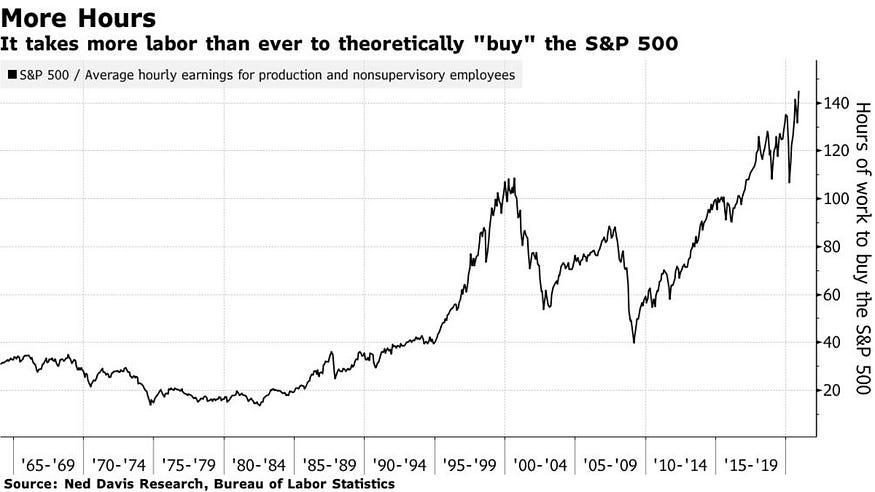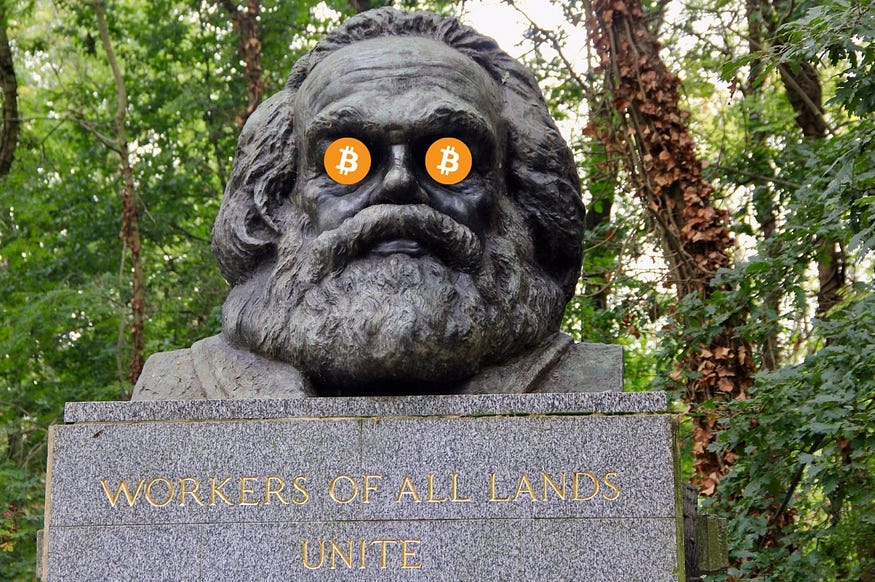In 1848 Karl Marx and Friedrich Engels published what is considered one the most influential political and economic essays of all time: The Communist Manifesto. The essay presents a critical theory regarding the power structures within the society, arguing that in a capitalist economy, a conflict will always emerge between the ruling class (the so-called bourgeoisie) and the working class (the so-called proletariat), due to a supposed exploitation of the latter by the former through the ownership and control of the means of production.
Reading this essay 175 years later, it’s hard one can try to understand how these ideas came into play. Mark and Engels try to portray the working class as an economic victim, which has no other option to survive, but to sell their labor to the bourgeoisie. In an era that firmly contrasts with the abundance that marks today’s world, 60 and 70 hours work weeks were the standard, literacy rates were expressively low, barriers of entry were not yet dismembered by the information age and information was not exponentially available to everyone through the internet, one could make the argument that indeed the negotiation power between labor and capital was unbalanced. Since the margin utility of an extra unit of money for a worker is significantly bigger than the marginal utility that a company gets from someone’s labor, an imperfect market will naturally emerge, since capital ends up having way more bargaining power than labor.
However, although we are living through an era that has been experiencing a series of problems (WTF Happened in 1971), technology has democratized the access to knowledge, allowing the economy to increase the human capital stock like never before. Moreover, the number of hours that someone works on average is considerably smaller than the one back in the 19th century. That provides more time for everyone to develop themselves (increase their human capital) by learning all sorts of capabilities and skills. For example, anyone with an internet connection can nowadays learn how to code.
Furthermore, more free time also allows anyone that relies on a wage to develop more easily all sorts of projects that provide value in the marketplace. Additionally, if someone wanted to take on a business endeavour in the past, the amount of investment was significantly greater, since we were living in an era where capital and the factors of production were physical and tangible. With the arrival of the information age, it has never been as easy to start a business that enhances our value proposition. As an example, if I wanted to start a writing column (blog) 50 years ago, I would have to either sell my labor directly to a company or start a new newspaper. Today, I only need an internet connection.
Thus, how are these ideas being spread at such a rapid rate in today’s society? Because indeed we live in a society of classes. Everyone can see it. Everyone can feel it. However, we are not talking about the bourgeoisie and the proletariat. We are talking about the cantillionaire class, the wage slavery working class and the surviving class (those that don’t benefit from the fountain of freshly minted money, yet know the rules of the game, therefore protect their wealth in hard assets. High-Class white-collar workers and small and middle business owners are an example). If someone controls the money that we work for, they control us. With this control over money by an elite, that elite can steal directly from those that hold that money. This wealth theft ends up resulting in one of the most well-known criticisms of Marx which we have already mentioned in the beginning of this article: the lack of bargaining power in the negotiation table of the proletariat (the wage slavery working class).
What should happen in a truly capitalist system is that, due to technological advancements, it should get easier for someone to save money and purchase a share of the factors of production by buying stock or for example starting their own business. By multiplying income and diversifying income streams, one should become more anti-fragile, achieving more negotiation power when the time comes to require a higher wage for their work. However, due to asset inflation and the devaluation of everyone´s savings and wages propped up by central banks, one must work more and more hours to have the slightest chance of acquiring an asset. This forces people to rely only on their depreciation wage to survive or to get indebted like never before, putting them in an even more fragile position. Any bargain power that workers had just simply disappears. How can someone quit a job they hate if they have no savings and have to pay a mortgage every single month? Consequently, the relationship between capital and labor gets more and more unbalanced. Furthermore, capital owners are also incentivized to not a pay a fair wage, since they also have to keep up with the rate at which their purchasing power gets depleted. We end up having a market that is everything but free and perfectly competitive. Inequalities will inevitably rise, and social unrest will also naturally emerge, just as we are witnessing in today’s western society.


How can se solve this problem? By having a deflationary economic system! If incomes rise in real terms, wage earners will have more savings, prices will fall, which means the average citizen will be more capable to purchase a stock or start their own business. (Factors of production) Reliance on debt will also fall, which will strengthen the negotiation power of anyone that relies on a wage as their single source of income. Capital owners will not have to encounter the pressure that comes from the fact that their business is worth less due to the depletion of the purchasing power of the firm´s cash flows. Cantillionaires will not be able to steal the fruits of someones´s labor anymore. A more balanced and fair market will emerge between capital and labor!





Related Posts
Inflacija: Skriti davek, ki požira vašo kupno moč – kako jo premagati s trdnim denarjem - Burek zgodba
Feb 15, 2026
Mediji lažejo o Bitcoinu — resnica o pranju denarja, ki jo skriva finančni sistem
Feb 08, 2026
Kako kripto kartice in bitcoin plačila v EU in Sloveniji ne delujejo - Regulacije in davki kot glavni krivci
Feb 06, 2026